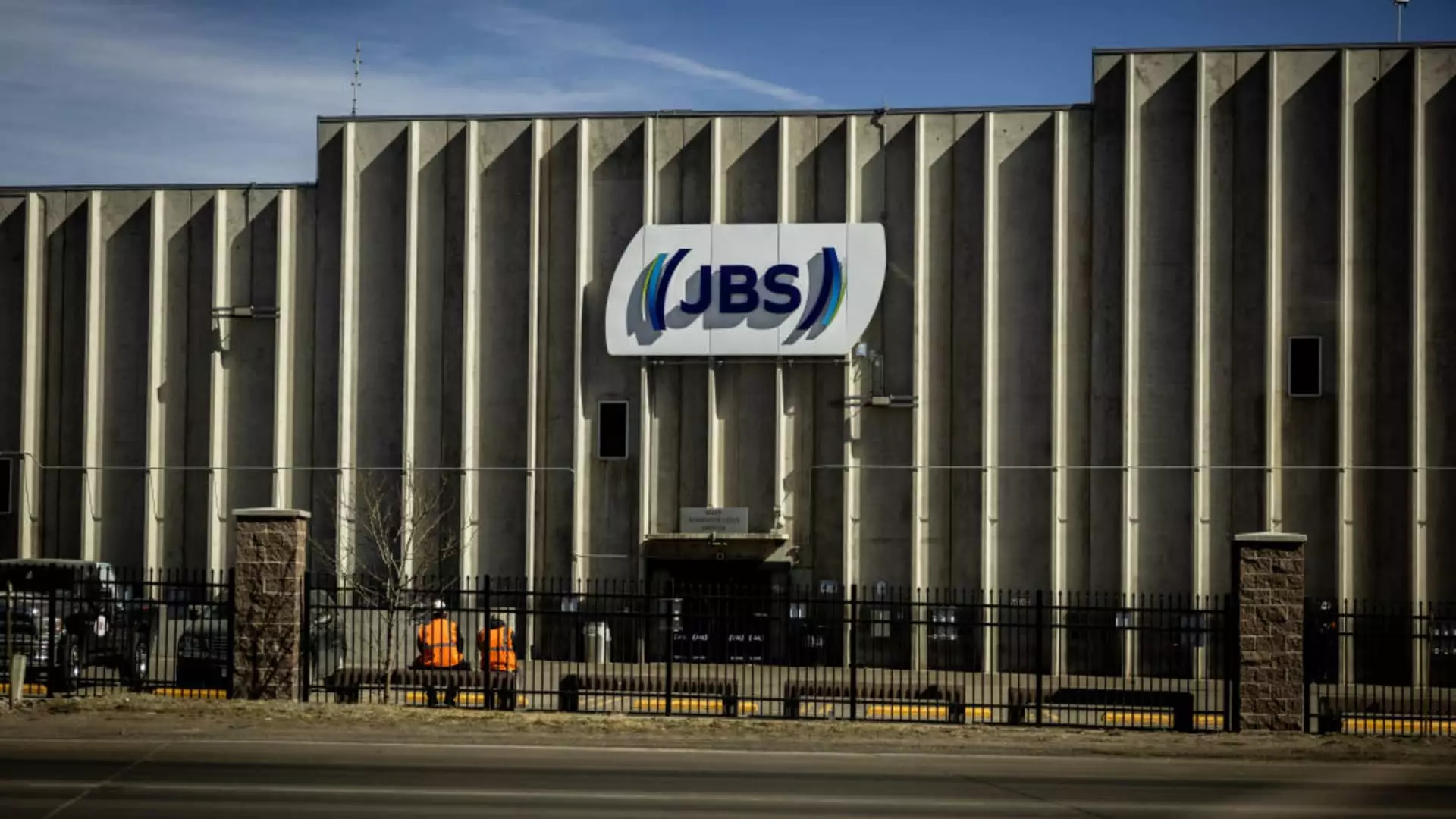The recent public debut of JBS, a Brazilian giant in the meatpacking industry, has sent shockwaves through the financial community. With shares opening at $13.65 and valuing the company at an astounding $30 billion, JBS has positioned itself as a formidable player against its main rival, Tyson Foods, whose market capitalization sits around $19.82 billion. This launch on the New York Stock Exchange, unfortunately, was marred by delays due to unresolved operational matters, reflecting the company’s historical pattern of tumult and controversy.
This dual-listing transition, which saw JBS delisted from the São Paulo Exchange, symbolizes not just a financial strategy but also a desperate attempt to shed a rocky past defined by corruption scandals and legal battles. For a company that has weathered storms for over seventy years, this moment should have been a celebration; instead, it raises more questions than answers about the integrity of the meat industry.
The Shadow of Corruption Looms Large
The Herculean narrative of JBS is intertwined with scandal. Over the years, the company has faced multiple investigations, including high-profile corruption cases that have left a scar on its reputation. Former executives, including the notorious Batista brothers, have engaged in a series of dealings that saw them avoid prison sentences in exchange for cooperation with prosecutors. Yet this raises a troubling question: Can we trust a corporation whose very foundation has been built on deception?
In 2017, JBS paid a staggering $3.2 billion fine to settle bribery charges linked to corruption in Brazil. This alone should serve as a chilling reminder of how deep-rooted unethical business practices can permeate even the most successful companies. Furthermore, JBS’s questionable activities continued to unfold, as evidenced by their recent fine for purchasing cattle from operations allegedly involving illegal land use in the Amazon. Such actions speak volumes about the company’s disregard for environmental laws and ethical concerns, potentially contributing to the ongoing devastation of the Amazon rainforest.
The Political Dance and Ethical Quandaries
Perhaps more troubling is how JBS has maneuvered through the political landscape. The company has shown itself to be adept at cultivating relationships across party lines, a skill that has become crucial in today’s fragmented political arena. The $5 million donation to President Trump’s inaugural committee illustrates just how effectively JBS has leaveraged its money for influence. In a world where financial contributions can sway political decisions, this raises ethical quandaries about transparency and accountability.
Notably, lawmakers from both ends of the spectrum have expressed their opposition to JBS’s U.S. listing, highlighting the challenges that the company faces. The ambiguous nature of its dealings combined with a complicated legacy has made it difficult for JBS to gain full acceptance. Such pushback is not merely an inconvenience; it is indicative of a broader skepticism that requires the company to address its complicated history head-on if it hopes to gain trust in a new market.
The Impact on an Industry and Consumers
The implications of JBS’s rise are far-reaching, potentially affecting not just its competitors but also consumers. The sheer scale at which it operates—as the world’s largest meatpacking company—sends ripples throughout the supply chain, influencing pricing, availability, and even ethical standards within the food industry.
For consumers, the moral dilemmas posed by buying products from a company steeped in scandal cannot be easily dismissed. It’s crucial to ask ourselves: is the convenience of purchasing meat from a market leader worth the consequences of supporting a company with such a tarnished track record? Consumers are increasingly aware of where their food comes from, and companies like JBS would do well to recognize that loyalty can be fragile in the face of ethical breaches.
In an era where corporations are held accountable for their actions, JBS stands at a pivotal crossroads. It can either forge a path toward transparency and ethical governance or continue to wallow in the shadows of its past, risking the trust of consumers and investors alike. The eyes of the market—and the world—will be watching closely.

